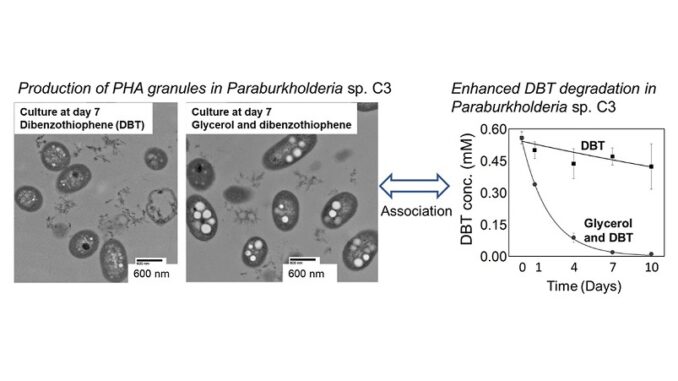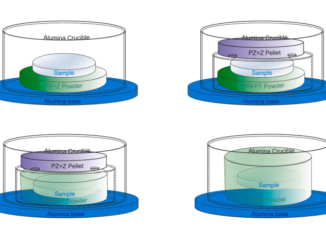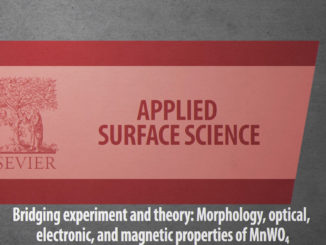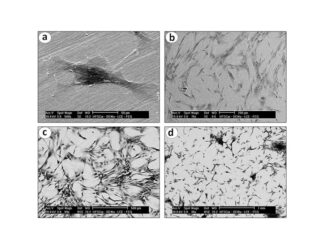
Glycerol-assisted degradation of dibenzothiophene by Paraburkholderia sp. C3 is associated with polyhydroxyalkanoate granulation
Abstract: Glycerol is a biodiesel byproduct. In the present study, glycerol was used as a co-substrate during biodegradation of dibenzothiophene (DBT) by Paraburkholderia sp. C3. Polycyclic aromatic hydrocarbons (PAHs) are a group of persistent, ubiquitous and carcinogenic chemicals found in the environment. DBT is a major sulfur-containing PAH. The chemical properties of DBT make it an ideal model pollutant for examining the bioremediation of higher molecular weight PAHs. Bioremediation uses microbial catalysis for removal of environmental pollutants. Environmental microorganisms that encounter aromatic substrates such as heterocyclic PAHs develop unique characteristics that allow the uptake and assimilation of these cytotoxic substrates. Microbial adaptations include changes in membrane lipid composition, secretion of surface-active compounds and accumulation of lipid granules to withstand chemical toxicity. Biostimulation using more readily metabolized substrates can increase the biodegradation rate of PAHs, but the molecular mechanisms are not well understood. We analyzed the DBT biodegradation kinetics in C3, proteome changes and TEM micrographs in different culturing conditions. We utilized 2-bromoalkanoic lipid metabolic inhibitors to establish a correlation between polyhydroxyalkanoate (PHA) granule formation and the enhancement of DBT biodegradation induced by glycerol. This is the first description linking PHA biosynthesis, DBT biodegradation and 2-bromoalkanoic acids in a Paraburkholderia species.
Author(s): Ramirez, C. A. O.; Ching, T.; Yoza, B.; Li, Q. X.
Chemosphere
Published: March 2022, Volume 291, Part 3, 133054
DOI: https://doi.org/10.1016/j.chemosphere.2021.133054
CDMF
The CDMF, hosted at the Federal University of São Carlos (UFSCar), is one of the Research, Innovation and Dissemination Centers (RIDC) supported by the São Paulo State Research Support Foundation (Fapesp), and also receives investment from the National Council Scientific and Technological Development (CNPq), from the National Institute of Science and Technology of Materials in Nanotechnology (INCTMN).




